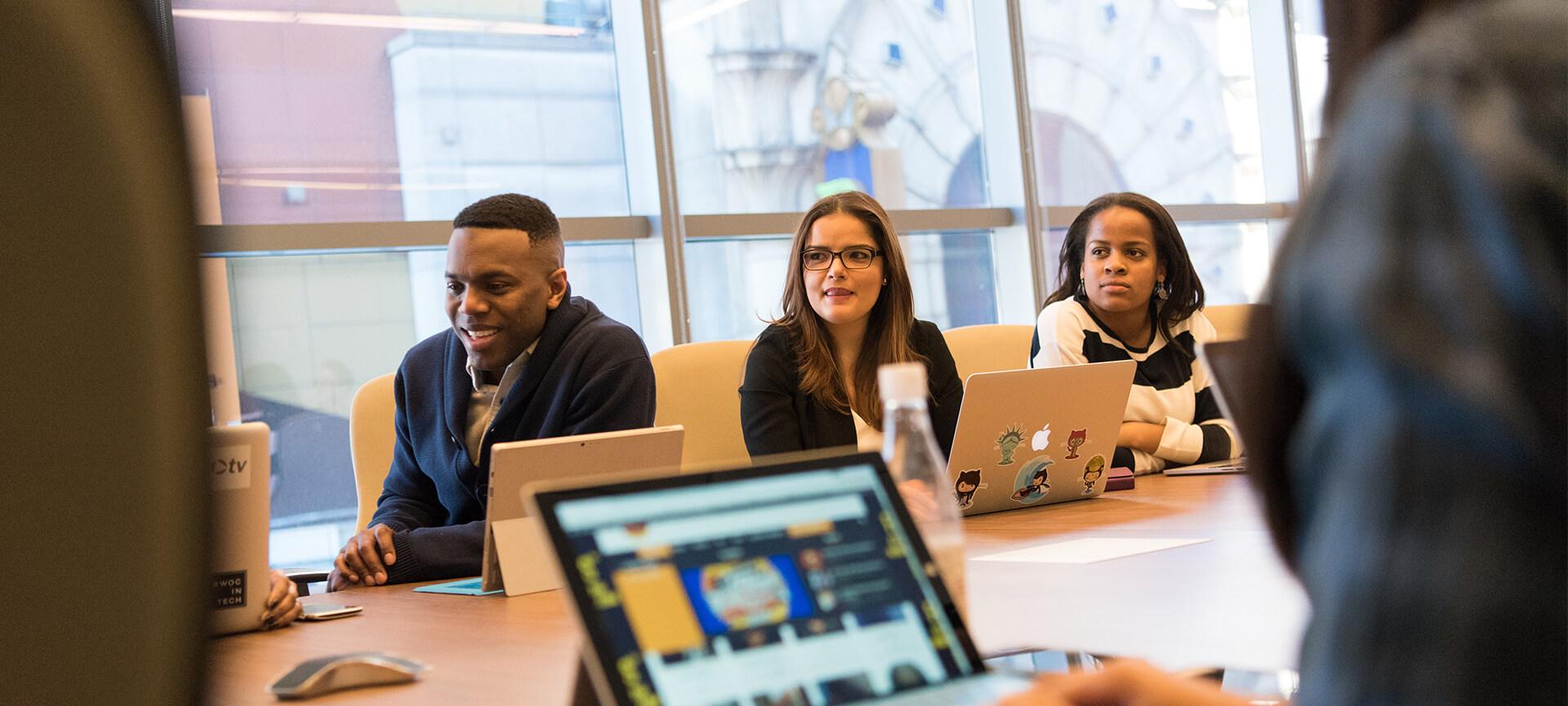
Women and technology: a bright future
It’s International Women’s Day on 8 March, and we’re taking a look at women in technology and the importance of digital inclusion.
There’s an indisputable gender divide when it comes to the IT industry, but the value of including women on both sides of the industry – as creators and as users – is important for diversifying input and creating the best possible digital world.
Let’s take a look at what’s currently going on in the industry, at the trailblazers behind some of the most well-known tech companies, and find out about some great initiatives creating a bright future for women in technology.
Women in tech
This may not come as a surprise, but according to this study ICT has one of the highest gender disparities of any industry in Australia, with less than 20 percent of positions in the majority of IT occupations held by women.
In comparison, the percentage of women employed across all industries in Australia is a little over 45 percent. These figures are reflected outside of Australia as well – not even the technology capital of Silicon Valley can boast a more diverse workforce.
A myriad of research shows that employing more women in the ICT industry is not only good for business but would help to address the general skills shortage in the industry.
Half of all technology users are women, and studies have shown that women are the more dominant users and early adopters of new technology, making their input and experiences as valuable as their male colleagues.
There is also plenty of generalised research that shows the benefits of diversity in the workplace. A team that is diverse in gender, culture and life experience is more likely to come up with innovative solutions to problems – a skill that is imperative to the development of new technology.
Thankfully, the IT industry is starting to pay attention. There is a rapidly growing list of female role models, inspiring women in leadership positions in some of the world’s most innovative tech organisations.
Last year Deloitte released a paper on Women in IT in which they interviewed some of Australia’s most successful female technology leaders including Suzanne Campbell, CEO of the Australian Information Industry Association and Jane Treadwell, CEO of DesignGov.
Women with tech
Social equality means empowering more women to access technology and acquire digital skills. For women in marginalised groups such as those living in developing countries, living in poverty or women with disabilities, technology can play a big part in creating new opportunities, autonomy and self-confidence.
At a base level, access to technology gives women access to information and education, ease of communication and a sense of connectedness, financial and time savings, and affords them equal rights as recognised by the UN. Technology can assist women in finding work and becoming financially independent.
The Your Say, Your Rights report from Women With Disabilities Victoria outlines the benefits of IT for women with disabilities. Assistive technology can have a great impact on autonomy and the ability to interact with public spaces and perform day-to-day activities. Social networking has positive outcomes from greater social connections to an increased opportunity for social equality.
Technology also has an important role to play in national economic growth. A report from the International Centre for Research on Women (ICRW) notes that improving access to technology for women has significant benefits for children, families and the broader community and in turn can benefit the economies of developing nations.
Organisations such as Women With Disabilities Victoria, the ICRW and Infoxchange are leading conversations and action around how we can provide more women with the skills and access to take full advantage of the digital age and empower themselves and their communities.
The future of women and tech
The positive relationship between women and technology is being recognised the world over and there is a growing list of great initiatives bridging the gap between women and technology. Here are some of our favourites:
- The Ada Initiative – supports women in open technology and culture.
- Girl Geek Dinners – provides networking and education opportunities for girl geeks all over the world.
- PyLadies – support and networking for women coding in Python
- Girls Who Code – a non-profit organisation in the US that works to equip high-school girls with the skills and inspiration to follow careers in technology sectors.
- Black Girls Code – Another US non-profit empowering girls of colour, age 7-17 to pursue careers in STEM fields.
- Microsoft Digigirlz – offers online education, day programs and tech camps for high-school girls.
Find out more about careers at Infoxchange and work with us
